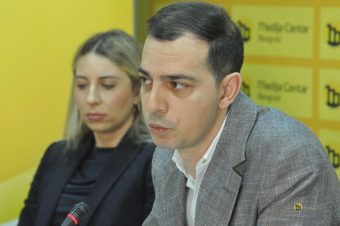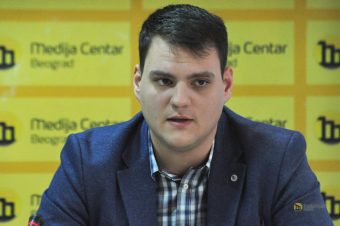The Zelena Serbia portal of the Beta News Agency, in cooperation with the European Climate Foundation, organized a panel discussion entitled “Amendments to the Energy Act: Directions and Predictions”, where Danijela Isailović, manager of the Association of Renewable Energy Serbia, Vladan Šćekić, program director of the Center for improvement of the environment, Nenad Maričić, prosumer from Ruma, and Dragan Ostić, representative of the Center for the Environment from Banja Luka.
The speakers agreed that the green agenda is recognized as an imperative, both in Serbia and in the region, but that its effective implementation is hampered by complicated administrative procedures and an insufficiently adjusted legal framework.
Nevertheless, we are on the right track, confirmed the manager of the OIE Serbia association, who says that last year we produced and consumed over 38 percent of green energy, which is at an enviable level even for some developed European countries. A large percentage of green kilowatts in the domestic energy mix comes from hydropower plants, but wind power and solar power projects are not far behind either, says Isailović.
“As for solar and wind, we currently have 10 built wind farms with a total power of 511 MW, some of which are on the transmission system and some on the distribution system. We also have 160 MW of solar power plants — of which 75 MW are prosumers, and there are also several tens of megawatts from biogas and biomass. These figures indicate that the goal set for 2030, according to which we should produce and consume 45 percent of green energy, is achievable, especially considering that we have a lot of projects in planning and construction,” said Danijela Isailović.
She added that very successful auctions for 400 MW of wind and 50 MW of solar were conducted in Serbia last year and announced that new auctions for 300 MW of wind and 124 MW of solar will be announced in the coming days.
How did the changes in the law affect the increase in the number of prosumers?
According to Vladan Šćekić from the Center for Environmental Improvement, 2,895 households, only three residential communities and around 1,090 companies are currently registered in the register of prosumers in Serbia. The total power of these plants is about 78 MW. He adds that the number of new prosumers this year will not exceed the number of those who registered in the register last year, and he says that he is most worried about housing associations, of which there are only three in the register.

When it comes to the profitability of this investment, Šćekić explains that previously, before the changes in financial laws, it was unprofitable to become a prosumer, bearing in mind that such solar power plants only paid for themselves in 20 years. In order to arouse greater interest of consumers, it was necessary to complete the concept of adjusting to net metering, an energy accounting system in which excess electricity produced from renewable sources is returned to the grid, and the producer receives credits that are used to cover consumption when production is insufficient.
“What has happened in the meantime is the change in the VAT law, and the VAT calculation has been adapted to net metering. Excise taxes were also applied, and the law on fees for the use of public goods was changed, within which the calculation of fees for energy efficiency was transferred. A decree was also adopted on compensation for the incentive of privileged producers, which was also transferred to net-metering. With that, we can say that the concept of adjustment to net metering has been completed, and the only thing left is the grid fee, which is paid for the total electricity taken,” points out Šćekić.
Speaking about the new law on energy, Šćekić says that it will bring prosumers a net-calculation, which implies the valorization of surplus energy delivered to the network, and it will happen by December 31, 2026 at the latest.
There are only 47 prosumers in Bosnia and Herzegovina
Although the Federation of Bosnia and Herzegovina adopted a law defining the concept of prosumers, there are only 47 of them on the territory of the entire Federation. Compared to other countries in the region, this is an extremely small number, said Dragan Ostić from the Center for the Environment in Banja Luka. .
He adds that there is great interest from citizens to install solar panels on their property, but that the process is hampered by a mismatch between demand and the activities of decision makers.
In order for the Federation to fulfill its goal for 2030, it should reach 100,000 prosumers, which seems unachievable in such a short period, Ostić said.
Is it worth becoming a prosumer?
Nenad Maričić, one of the prosumers from Ruma, was also a guest on this panel, and according to him, now is the right time for all those who are interested in becoming prosumers.

When Maričić entered the world of prosumers, the legal regulations were still not favorable enough, so he admits that he was disappointed when he saw the first electricity bill after the solar power plant was put into operation, because it would mean that the power plant would only pay for itself in 20 years. .
“The changes in the law that happened in the previous two years contributed to making the whole story about prosumers extremely worthwhile. We came to the point that, without solar panels, my household would pay about 200,000 dinars for electricity annually, and we managed to save 140,000 dinars, which means that nearly 70 percent of consumption is covered by production from our solar power plant. According to this calculation, the power plant pays for itself in six years, which, in my opinion, is good. I would invite everyone who is interested, but has not yet become a prosumer, to do so,” said Maričić.
Milena Maglovski
Source: energetskiportal.rs


